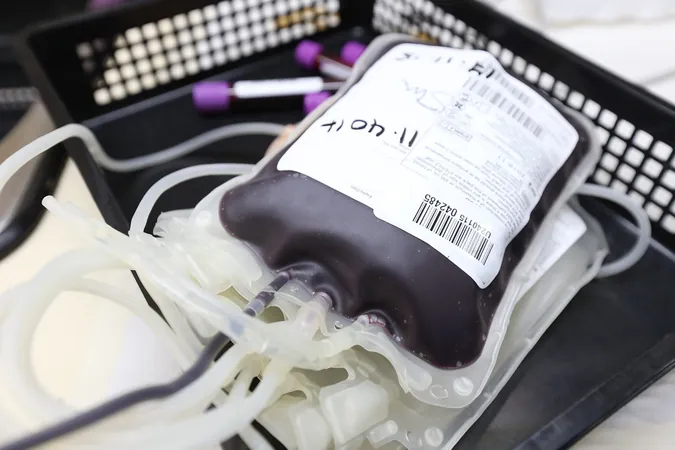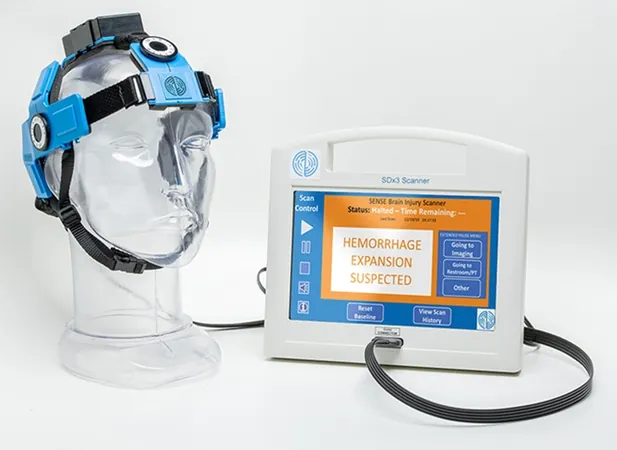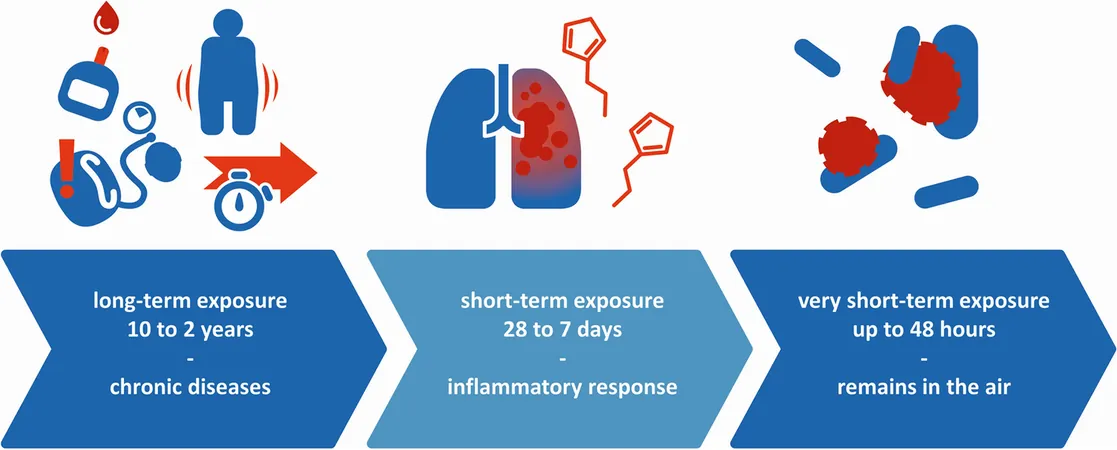
Game-Changer for Heart Attack Patients: More Blood Transfusions Linked to Higher Survival Rates!
2024-12-23
Author: John Tan
Groundbreaking Study Overview
A groundbreaking study led by Rutgers Health suggests that more blood transfusions for anemic heart attack patients may dramatically reduce mortality rates. Published in NEJM Evidence, this research supports earlier findings from 2023 that indicated that anemic patients receiving limited blood were at a greater risk for higher mortality rates and recurrent heart attacks.
Research Methodology
Under the direction of Dr. Jeffrey L. Carson, a distinguished Professor of medicine at Rutgers Robert Wood Johnson Medical School, this latest analysis combined data from four major clinical trials encompassing a total of 4,311 heart attack patients with anemia. This comprehensive approach enabled researchers to weigh the effects of blood transfusions more accurately.
Study Findings
The study examined two groups: one that received fewer blood transfusions and another that received a more liberal transfusion strategy. The focus was on tracking incidences of death or recurrent heart attacks both at 30 days and at six months post-treatment.
Although the findings did not definitively conclude that limited blood transfusions caused an increased risk of complications within 30 days, there was a significant association suggesting a higher risk of mortality at the six-month mark for patients who received fewer transfusions. This highlights the importance of reevaluating transfusion strategies in clinical practice.
Expert Opinions
Dr. Carson emphasizes the implications of the study, stating, “The results show that providing more blood to anemic patients with heart attacks can save lives over a six-month period.”
Patient Demographics
It’s noteworthy that a significant percentage of the trial participants had existing health issues, such as previous heart attacks, heart failure, diabetes, or kidney diseases. The average age of participants was 72 years, with women making up 45% of the cohort.
Conclusion and Future Implications
In conclusion, this pivotal research could change the standard care for anemic heart attack patients going forward. With additional studies needed to establish solid guidelines, the results advocate for a more aggressive approach to blood transfusions in this vulnerable population. This potentially life-saving method could transform outcomes for thousands and reshape practices in emergency and cardiovascular care. Are we ready to change our approach to treating heart attack patients? Only time will tell!



 Brasil (PT)
Brasil (PT)
 Canada (EN)
Canada (EN)
 Chile (ES)
Chile (ES)
 España (ES)
España (ES)
 France (FR)
France (FR)
 Hong Kong (EN)
Hong Kong (EN)
 Italia (IT)
Italia (IT)
 日本 (JA)
日本 (JA)
 Magyarország (HU)
Magyarország (HU)
 Norge (NO)
Norge (NO)
 Polska (PL)
Polska (PL)
 Schweiz (DE)
Schweiz (DE)
 Singapore (EN)
Singapore (EN)
 Sverige (SV)
Sverige (SV)
 Suomi (FI)
Suomi (FI)
 Türkiye (TR)
Türkiye (TR)